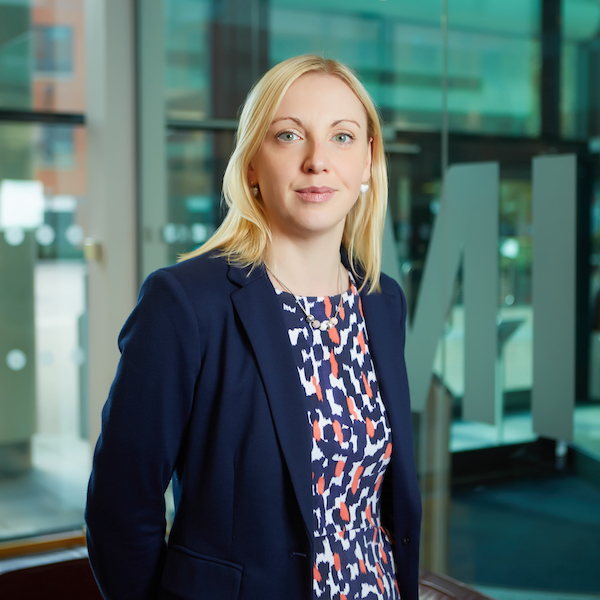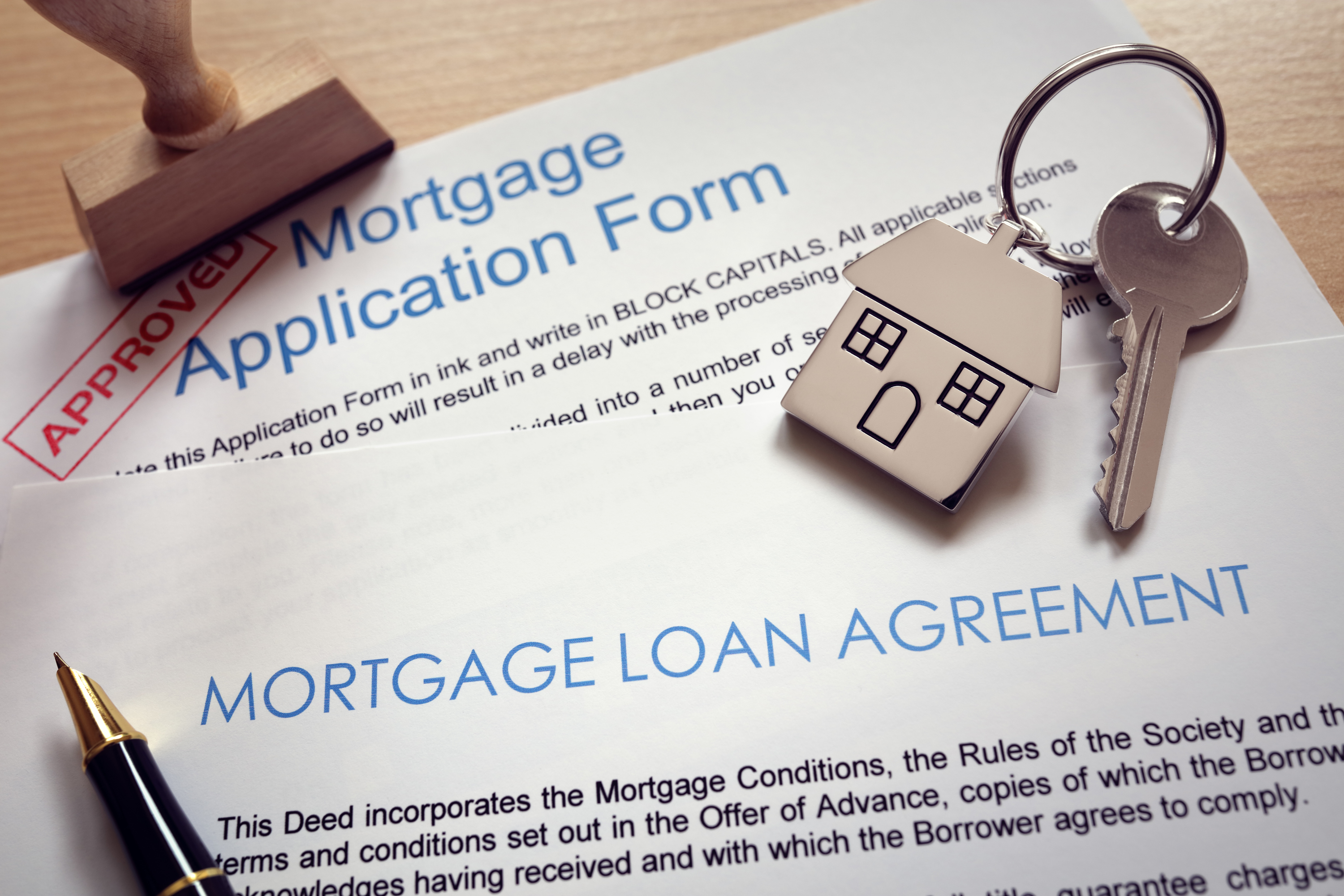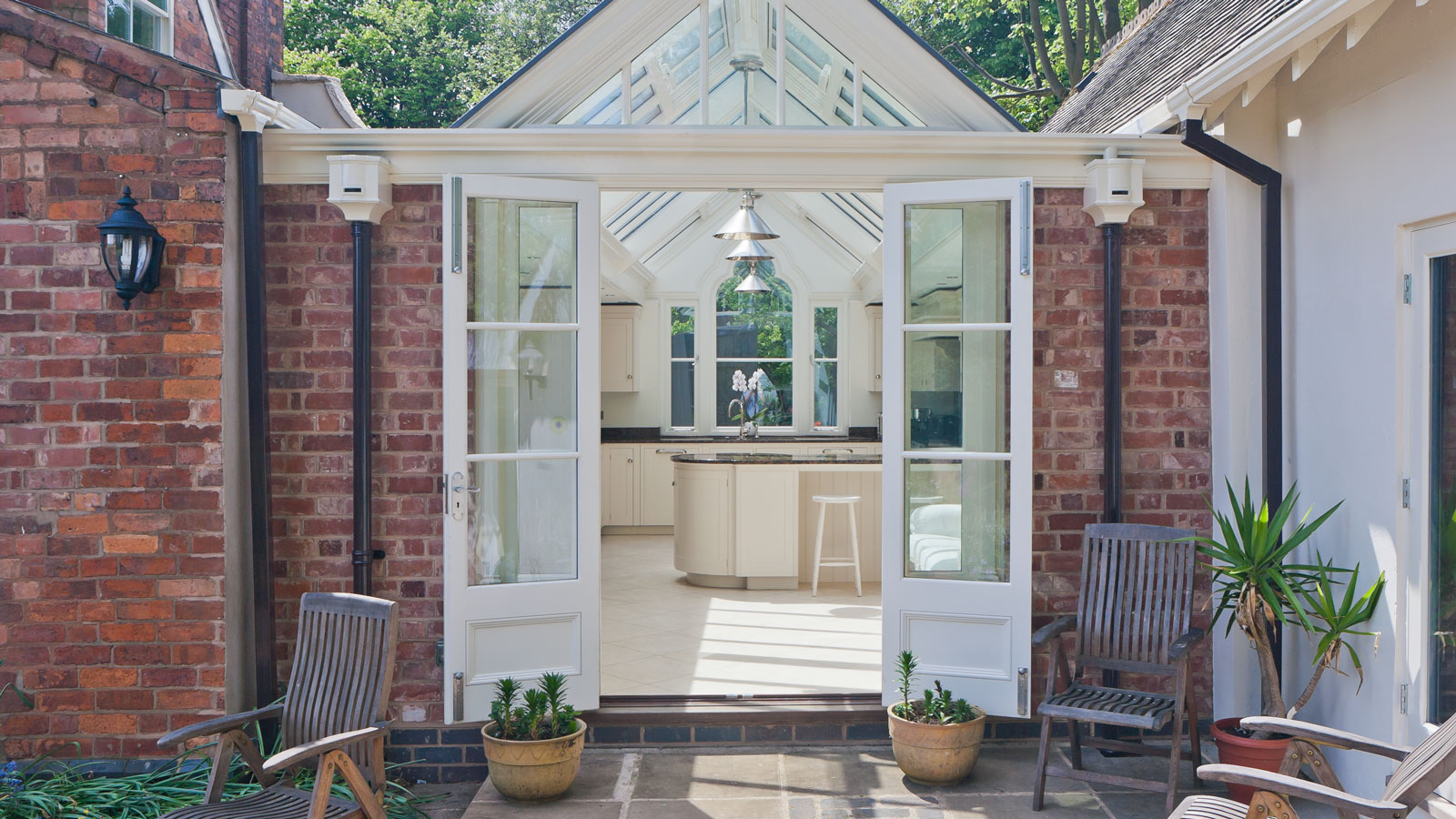What are the hidden costs of buying a house — on top of the purchase price?
Buying a house entails expenses aside from that of the property itself. Be sure to budget for them with our guide to what they are and when you’ll need to pay them

Bring your dream home to life with expert advice, how to guides and design inspiration. Sign up for our newsletter and get two free tickets to a Homebuilding & Renovating Show near you.
You are now subscribed
Your newsletter sign-up was successful
When you’re purchasing a home, it’s easy to focus entirely on what you’ll pay for the bricks and mortar, and forget that there are hidden costs of buying a house that must be budgeted for from the start.
There are a number of expenses that it’s all too easy to overlook when you’re buying a house and faced with the big number of the house price itself. But these additional charges are for services and information essential to the process. What’s more, if you buy with a mortgage, there are associated outlays that need to be accounted for.
To ensure you know what you can expect to pay for, we’ve put together a guide to the extra outlays of buying a house, and when you need to pay them.
Hidden costs when buying a house

Subscribe to Plotfinder.net to access over 15,000 building plots and properties that could become your next project
The cost of a property easily eclipses that of the other things we spend money on in our lives and with such a large sum to contemplate, it’s easy to forget that it’s not the only thing that has to be paid for when buying.
But there is a whole list of housebuying costs you shouldn’t forget as you’ll need the money available to pay for them. Be aware, too, that these can vary somewhat depending on which country of the UK you are buying in. Some, too, can be affected by government, including taxes on buying, and if schemes to help first-time buyers are in place.
How you buy also influences these costs: arranging a mortgage brings charges and the amount of your deposit can affect the level of interest you might pay. The term of the mortgage also affects what it costs.
Below is a list of what you need to prepare to pay and when so you can get your finances in order.
Bring your dream home to life with expert advice, how to guides and design inspiration. Sign up for our newsletter and get two free tickets to a Homebuilding & Renovating Show near you.
Conveyancing: Legal work
The costs of conveyancing have a number of elements, including the work of your chosen legal professional.
"Usually conveyancers will ask for a payment up front on instruction so that they can carry out initial work," explains Helen Hutchison, partner in the residential property team at Irwin Mitchell. "Expenses such as search fees are usually paid during the process as they occur."
Be prepared for an invoice towards the end of the housebuying process. "There will then be a final payment on or before completion which covers the rest of the conveyancing fees and any other expenses not already paid during the process such as Land Registry fees," says Helen.

Helen Hutchison is a partner in the residential property team at national law firm Irwin Mitchell. She deals with all aspects of conveyancing including sales, purchases, remortgages, shared ownership, relocations and equity release.
Conveyancing: Additional costs
There are added costs arising from the conveyancing process to bear in mind. "Aside from the fee covering the legal work that our conveyancers need to do for your property purchase there are usually additional fees that need to be paid depending on the circumstances of the deal," says Helen Hutchison. She explains that these typically include:
Mortgage fee
"If you’re buying with a mortgage, your lender will usually need us to do some extra legal work to support the transaction."
Searches
"We need to carry out searches to advise you and any mortgage lender about any potential risks involved with the property you’re buying. This can vary between properties. If any non-standard searches are needed, additional fees may apply but your conveyancer should explain any costs outside of their quote."
Land Registry
"The Land Registry charges a fee to register the title to the property electronically. This fee doubles if we can’t register the title electronically."
Telegraphic transfer fee
"When we complete the transaction, we’ll need to send the money to redeem any existing mortgage to your lender by telegraphic transfer. This fee covers the cost of that transfer."
Arranging indemnity cover
"There could be other fees such as for arranging indemnity insurance and the cost of the indemnity insurance itself, to protect you and your lender where there is a title defect."
Leasehold
"There may be additional fees for purchasing a leasehold property as there will be extra communication needed with the freeholder and potentially a management company."
Note that if you don’t end up buying the home, this doesn’t mean you won’t pay out. "Some fees will be non-refundable once the work has been carried out and the costs already incurred such as the fees for searches," explains Helen.
"You should check the terms and conditions from your conveyancer to determine the refund policy in the event of a transaction not completing," she says.
Mortgage: Fees

There are a number of costs associated with getting a mortgage about which you should be aware.
"If you’re planning to buy a home, it’s important to make sure you budget for a number of other costs involved aside from your deposit and monthly mortgage repayments," says Charlotte Grimshaw, head of mortgages at Suffolk Building Society.
"Some of these will be related to the mortgage itself, such as booking and arrangement fees which are usually paid before completion. Arrangement fees are sometimes charged as a flat fee but could also be a percentage of the loan."
There may be other costs. "If you’ve used a broker to find your mortgage, you’ll also need to cover any customer fees that they charge," says Charlotte.
Another cost to bear in mind is the valuation fee, notes Charlotte. "This is a basic survey undertaken by the lender to check that the property is adequate security for the mortgage," she explains. This is not the same as the survey (see below).

Charlotte Grimshaw is head of mortgages at Suffolk Building Society. She has spent over a decade at building societies, developing mortgage products for mortgage brokers and home buyers.
Mortgage: Interest
Be ready, too, for paying mortgage interest once the purchase is completed. Typically, putting down a larger deposit gets you a lower interest rate, but another factor can influence what is paid in interest.
"The term of a capital and interest mortgage significantly affects the total amount you pay over the life of the loan, both in terms of monthly payments and overall interest," says Charlotte.
"For shorter term mortgages, monthly payments are higher because the loan and interest are being repaid more quickly. However, you pay less interest overall because the loan is repaid faster, leaving less time for interest to accumulate. A shorter term requires a larger monthly commitment but saves money in the long run.
"For longer term mortgages, the opposite is true. Monthly payments are lower because the loan is spread out over a longer period, but you can pay significantly more interest over the life of the loan. As the repayment period is extended, this allows interest to compound for a longer time."
There is an exception. "For those on an interest-only repayment mortgage, the term doesn’t impact the monthly mortgage payment,’ says Charlotte. ‘With an interest-only repayment mortgage you will still owe the same at the end of the mortgage term (plus any added fees or additional interest) as you did at the start. You will therefore need to have a method of repaying the balance (your repayment strategy), such as a savings lump sum, endowment policy, or you plan to downsize."
To be sure of what you’ll be paying each month over a period of time, you may wish to opt for a fixed interest rate rather than a tracker or variable rate.
"Because the interest on a fixed rate mortgage remains the same for the agreed period, your monthly payments will stay the same," says Charlotte Grimshaw. "This is regardless of changes in the economy or interest rate benchmarks, which can affect tracker mortgage repayments."
Survey
As noted above, the mortgage valuation is not the same as a survey and it is well worthwhile to get a professional survey to inform you about the property once you have had an offer accepted (although the system differs for those buying in Scotland).
Add the cost of the survey in among the others of buying a house, bearing in mind that the different survey types come with different price tags.
The most comprehensive surveys, RICS level 3 or RPSA building survey, are the most costly of their options, but recommended for some properties. ‘A building survey is particularly suited for listed buildings, older properties, those requiring refurbishment, or unusual properties,’ explains Abbie Long, co-founder, Otters Home Search.
While a survey is an additional cost in the housebuying process, it could aid you to renegotiate on the price of the home if there is a serious issue. In any case, it can help you anticipate any future expenditure once you’ve bought the property.
"Ultimately, a building survey allows the purchaser to make a well-informed decision about the property and its purchase price," Abbie adds.

Abbie Long qualified as a chartered surveyor in 2004, initially working for commercial firms in London and Bristol. She moved out from the city to the country in 2007, settling in rural Wiltshire, experiencing her own property relocation first-hand. She founded Otters Home Search in 2023 with fellow property professional Francesca Watson.
Insurance
Be prepared to take out buildings insurance from exchange of contracts. "Most lenders typically require a mortgage holder to have buildings insurance in place from the day you exchange contracts," says Charlotte Grimshaw.
There is also contents insurance to budget for from when you move into the home.
Some homeowners may also want to take out mortgage protection insurance, Charlotte notes. "This can cover your mortgage payments if you’re unable to do so, for example, in the event of long-term illness or unemployment."
Some people also take out mortgage life insurance, which pays out if you die before you finishing paying the mortgage.
Stamp duty
Stamp duty is another cost you may need to budget for. "Depending on your circumstances and the property value you may have to pay a stamp duty land tax," says Helen Hutchison.
To understand what you can expect to pay in taxes in England or Northern Ireland, use the stamp duty land tax calculator; in Wales calculate land transaction tax; and in Scotland the property transactions calculator will show the LBTT liability.
It is usual for your legal professional to pay the stamp duty on completion with the amount added to their fees.
The hidden costs of buying a home mean you must budget for them from the outset. Don’t forget either that you may have to quickly pay out for more once you have the keys, including items such as window treatments and white goods not included in the sale, and any residents’ parking permit fees.

Sarah is a freelance journalist and editor writing for websites, national newspapers, and magazines. She’s spent most of her journalistic career specialising in homes.
She loves testing the latest home appliances and products, and investigating the benefits, costs and practicalities of home improvement. She is an experienced renovator and is currently remodelling the ground floor of her new home.
She was Executive Editor of Ideal Home and has worked for Your Home and Homes & Ideas. Her work has published by numerous titles, including The Guardian, channel4.com, Houzz, Grand Designs, Homes & Gardens, House Beautiful, Homes & Antiques, Real Homes, The English Home, Period Living, Beautiful Kitchens, Good Homes and Country Homes & Interiors.
